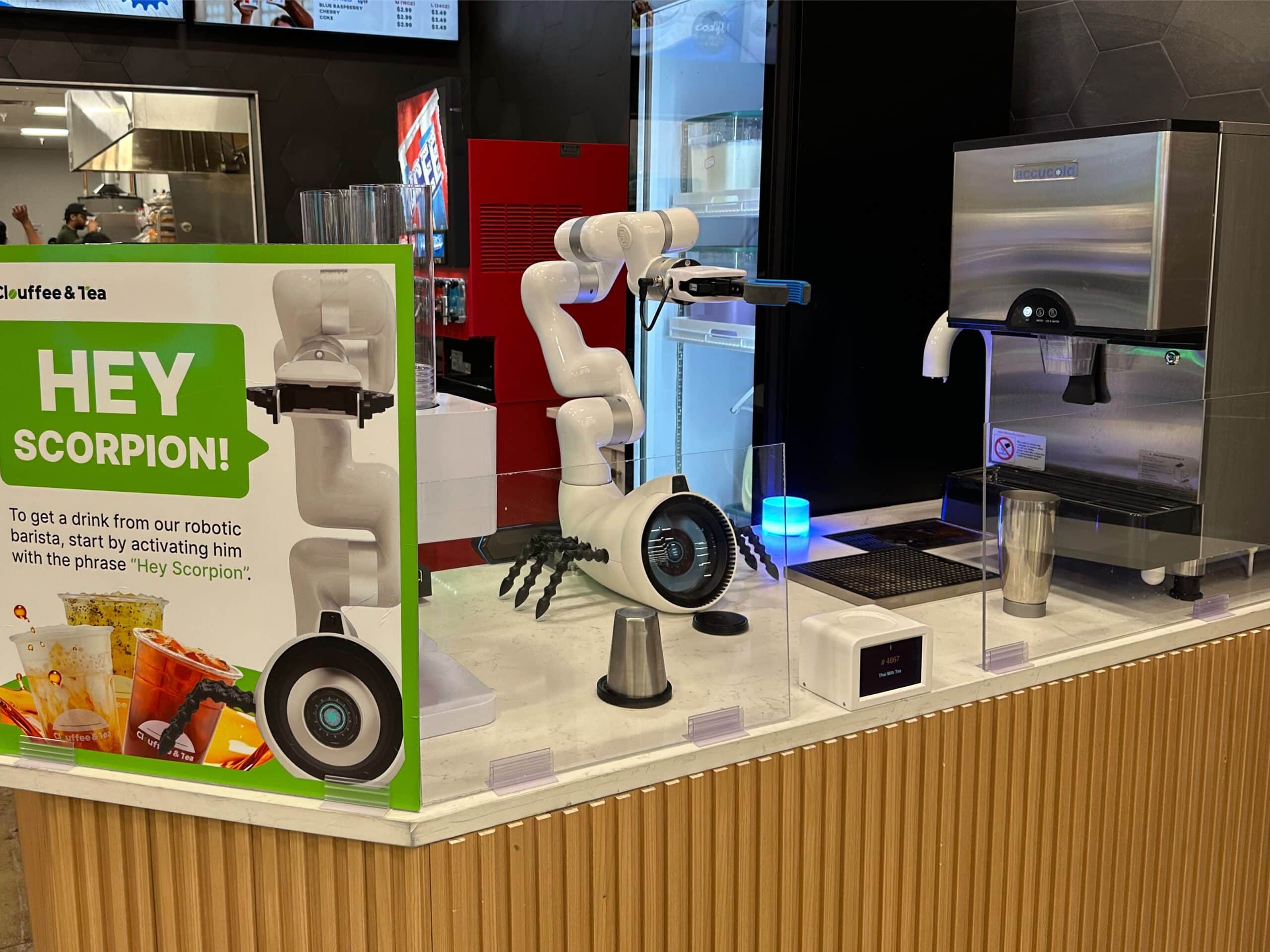A new wave of automation is brewing in Georgia — literally.
Richtech Robotics has launched its latest AI-powered service innovation at a Walmart Supercenter in Peachtree City. The new restaurant, operated in partnership with Ghost Kitchens America, showcases “Scorpion,” a humanoid robot utilizing Nvidia AI to prepare and serve coffee, milk teas, and fruit-based beverages.
This is not Richtech’s first foray into automated dining experiences. The robotics company previously debuted “Adam,” a humanoid robot, at its Las Vegas-based Clouffee and Tea restaurant. These robots are designed to complement human staff, who assist with tasks such as handling prepackaged snacks and guiding customer interactions with the AI systems.
Enhancing Customer Experience Through AI
Scorpion, equipped with Nvidia’s advanced AI technology, does more than just pour drinks. It can analyze surroundings, engage with customers, and interpret voice commands in multiple languages. This creates a seamless and interactive ordering experience, allowing customers to receive personalized drink recommendations and communicate effortlessly with the robot.
With the ability to serve up to 200 beverages daily, the Adam robot is setting a new standard in automated customer service. The robots are integrated into a touchscreen point-of-sale system, streamlining the ordering and payment process.
National Expansion and Strategic Vision
Richtech’s AI-driven restaurant concept has already expanded to over 20 Walmart locations across states like Arizona, Colorado, Texas, and now Georgia. According to Richtech Robotics President Matt Casella, the Peachtree City outlet is expected to generate consistent revenue and strong cash flow while offering a novel and efficient customer experience.
“The interest in our AI-powered service robots is rapidly growing in the restaurant industry, driven by the need for enhanced operational efficiency and a unique, engaging customer experience,” said Casella in a statement.
Driving AI Research in Academia
In addition to its commercial ventures, Richtech has launched a robotics accelerator program aimed at U.S. universities. The initiative provides access to Richtech’s autonomous mobile robots and robotic arms, all powered by Nvidia AI. These systems feature machine vision and voice interaction capabilities that can be used in research environments to further innovation in robotics and AI.
Columbia University is the first institution to join the program, focusing on enhancing natural language processing and path planning through localized AI models. This collaboration supports Richtech’s mission to apply AI robotics across industries such as manufacturing, healthcare, and hospitality.
Robotics on Display at CES
Richtech also made a splash at CES earlier this year, where it showcased both the Adam and Scorpion robots. These demonstrations highlighted the capabilities of AI in hospitality and healthcare, including autonomous delivery systems and interactive service bots.
The Scorpion robot, in particular, attracted attention for its one-arm design specifically engineered for drink service, while Adam was featured interacting with guests in a mock restaurant environment.
AI, Robotics, and the Future of Retail
With labor shortages impacting industries across the board, Richtech’s AI-enhanced robots are positioned as a timely solution. By incorporating Nvidia’s AI capabilities, these humanoid robots serve not just as novelty — but as scalable, efficient tools that can reshape the customer experience in retail and food service environments.
As more retailers and restaurants explore the benefits of automation, Richtech’s approach could serve as a blueprint for integrating AI into everyday commerce. The blend of robotics, machine vision, and natural language understanding is setting the stage for a new era of smart service environments.
If you’re interested in how AI is transforming in-car experiences in a similar vein, check out this related story on Cerence’s AI voice technology for vehicles.
From coffee to code, Nvidia’s AI is powering the next generation of intelligent machines — and they’re serving more than just your morning latte.







